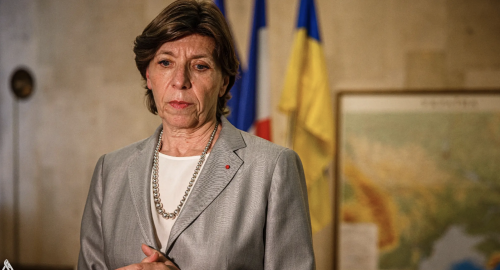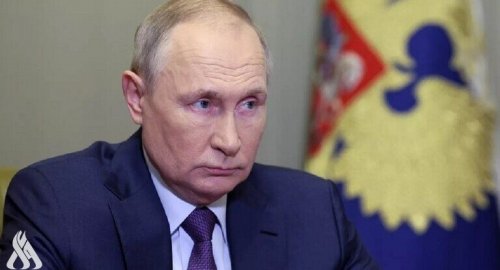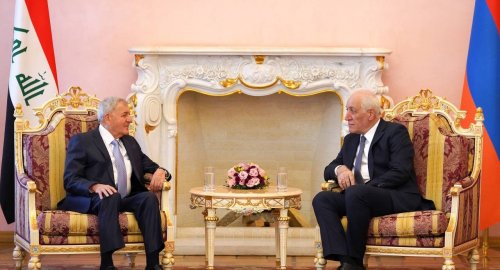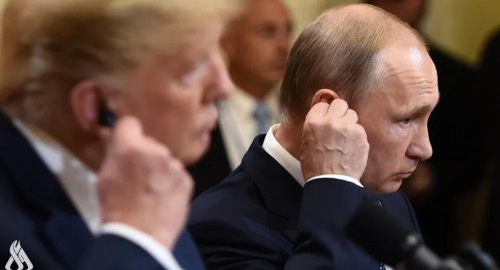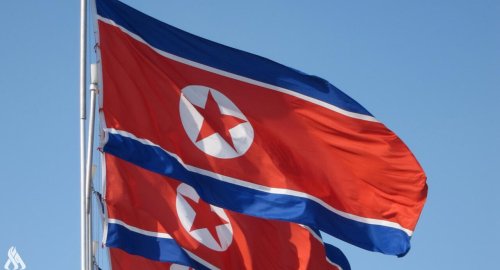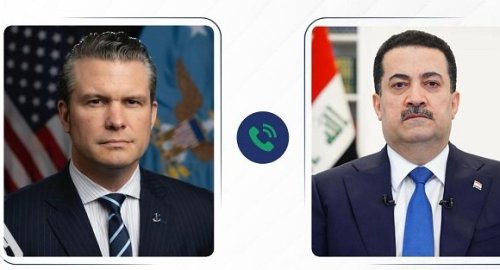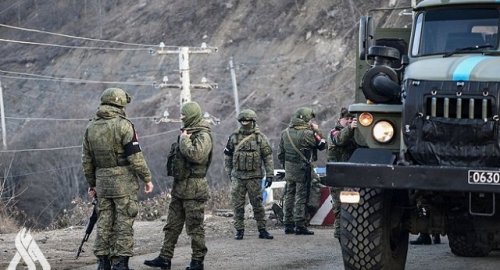
Armenian soldiers killed by Azerbaijani fire in biggest skirmish since exodus

International
- 14-02-2024, 09:43
INA- sources
Armenia said on Tuesday that four of its soldiers were killed by Azerbaijani fire along the two countries' heavily militarised border, the first fatal incident since they began negotiating a deal to end more than 30 years of intermittent war last year.
Fatal exchanges have been common along the closed, roughly 1,000 km (620 mile) frontier since 1988 when Christian Armenia and mostly Muslim Azerbaijan first went to war over the breakaway region of Nagorno-Karabakh, but the situation had calmed amid peace talks in recent months.
Tuesday's incident was the biggest since hundreds died when Azerbaijan retook Karabakh in September, prompting an exodus of the region's ethnic Armenian population.
Armenia's Defence Ministry said in a statement that the four soldiers were killed and another wounded at a combat post near the southern Armenian village of Nerkin Hand.
Azerbaijan's Foreign Ministry said in a statement that its attack on the Armenian position had been in retaliation for an Armenian "provocation" the previous day that it said wounded one of Baku's soldiers in the area.
Baku said it had no intention of further escalation.
"Azerbaijan is committed to the peace process, and calls on the Armenian side to refrain from military escalations that would jeopardise the efforts to that end," it said.
Azerbaijan's Defence Ministry said earlier that Armenian forces on Monday evening fired at Baku's positions near Nerkin Hand, and at another point along the border, around 400 km (250 miles) to the north. It said one Azerbaijani serviceman had been wounded in the first incident.
Armenia said it was investigating the Nerkin Hand shooting, and denied the incident Baku reported further north.
In a statement, Armenia's Foreign Ministry said that Azerbaijan had been looking for a "pretext" to attack Armenia, and accused Baku of deliberately jeopardising the peace process.
"The Azerbaijani leadership is consistently trying to thwart the efforts of actors interested in the stability and security of the South Caucasus to resume negotiations aimed at resolving relations between Armenia and Azerbaijan," it said.
PEACE TALKS STAGNATE
The Kremlin, which is formally allied to Armenia but also has close ties with Azerbaijan, called for restraint on both sides. A Russian peacekeeping contingent remains in Karabakh and its border guards help patrol Armenia's frontiers.
EU foreign affairs chief Josep Borrell said during a press conference with Armenian Foreign Minister Ararat Mirzoyan in Brussels that Armenia's shooting of an Azerbaijani soldier was "deplorable", but called Azerbaijan's response "disproportionate".
The EU's relations with Azerbaijan have sharply deteroriated since September, as Armenia has deepened ties with the bloc.
The Nagorno-Karabakh region of Azerbaijan had a mostly ethnic Armenian population which won de facto independence after a lengthy war during the collapse of the Soviet Union.
But Azerbaijan in September retook Karabakh in a lightning offensive, prompting a rapid exodus of almost all of the territory's ethnic Armenian population of more than 100,000, and a renewed push from both sides for a deal to end the conflict.
Both Armenia and Azerbaijan have said they want to sign a peace treaty, but disagree over issues including precise demarcation of their border and control over several small territorial enclaves.
Azerbaijan also wants a customs-free transport corridor through Armenian territory, connecting Azerbaijan's mainland with its Nakhichevan exclave. Armenia has said it must retain control over any transport links on its soil.
Talks have in recent months appeared to stagnate, with both sides accusing the other of sabotaging the diplomatic process.
source: REUTERS
Trump says will speak with Putin on Tuesday to discuss ending Ukraine war
- International
- 09:19
North Korea blasts G7's call for country to abandon its nuclear arsenal
- International
- 09:06
Oil prices inch up despite tariff concerns, slowdown fears
- Economy
- 25/03/11
Klopp Tops List of Candidates to Coach Juventus
- Sport
- 25/03/12
